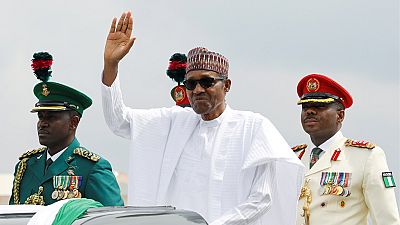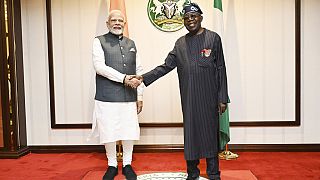Nigeria
Nigeria’s president Muhammadu Buhari on Wednesday replicate successes of his first four years in offices, citing an improved economy and better infrastructure among those achievements.
Buhari won re-election in February this year, polling 56% of the vote, whose turnout was just 36%.
Buhari’s government considers its first term to have been hugely successful in terms of implementing his campaign pledges. Listed among his achievements are;
- Nigeria’s exit from recession
- Successes against Boko Haram militants including the return of the kidnapped Chibok schoolgirls
- Improved infrastructure including road and railways construction
- Disbursement of loans to farmers
“The principal interest of this administration is to consolidate on the achievements of the last four years,” the 76-year-old former military leader said in his first major public speech since his re-inauguration last month.
But critics have often found fault with Buhari’s first term, when he was absent for long periods for health reasons, and economic improvement was largely down to improved oil prices.
“In the last four years, we have made solid progress,” Buhari told an audience of government, military and traditional figures and foreign dignitaries during a celebration of the return to democracy in 1999.
Buhari’s second-term projections
Buhari said Nigeria’s economy would grow 2.7% this year – but that was below the central bank’s 3% forecast in March.
“We can lift 100 million Nigerians out of poverty in 10 years,” he promised.
Buhari said he would continue to build roads, fix the electricity grid and improve other infrastructure.
He also reiterated his support for agriculture.
“When economic inequality rises, insecurity rises. But when we actively reduce inequality through investments in social and hard infrastructure, insecurity reduces,” he said.
Economists have lamented Nigeria’s sluggish growth since it climbed out of recession in 2017, with the population getting poorer as birth rates outpace economic expansion.
Buhari also signalled policy stability when he re-appointed as central bank governor Godwin Emefiele, a controversial figure for his first-term foreign exchange machinations to shore up the naira currency.
Meanwhile, violence has spread and is thriving across wide swathes of Nigeria’s northwest, northeast and central states, often in places that were less troubled before Buhari’s rule.
The only corruption being tackled, anti-graft activists and opposition politicians say, is that of Buhari’s political enemies, while allegations against his allies are rarely followed through to prosecution.
REUTERS













Go to video
Ghana overtakes Nigeria in U.S. visa overstay rates, new report reveals
01:07
Pro-palestinian demonstrators protest in Rio de Janeiro as G20 summit unfolds
01:00
Chidimma Adetshina crowned Miss Universe Africa and Oceania
01:05
Nigeria: Tinubu orders release of child protestors
Go to video
Nigerian MP caught on camera assaulting delivery driver
01:00
Pics of the day: October 29, 2024